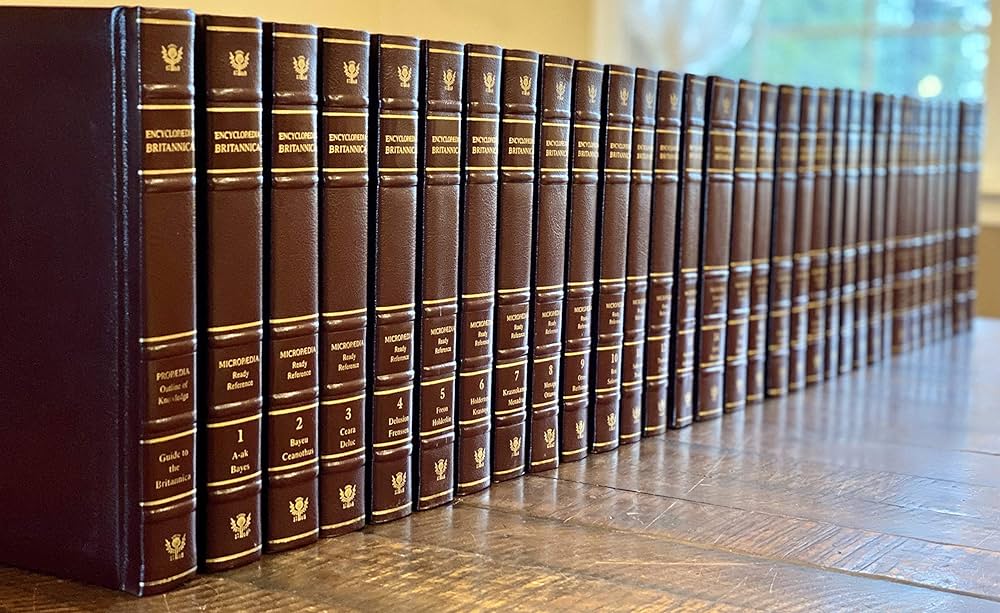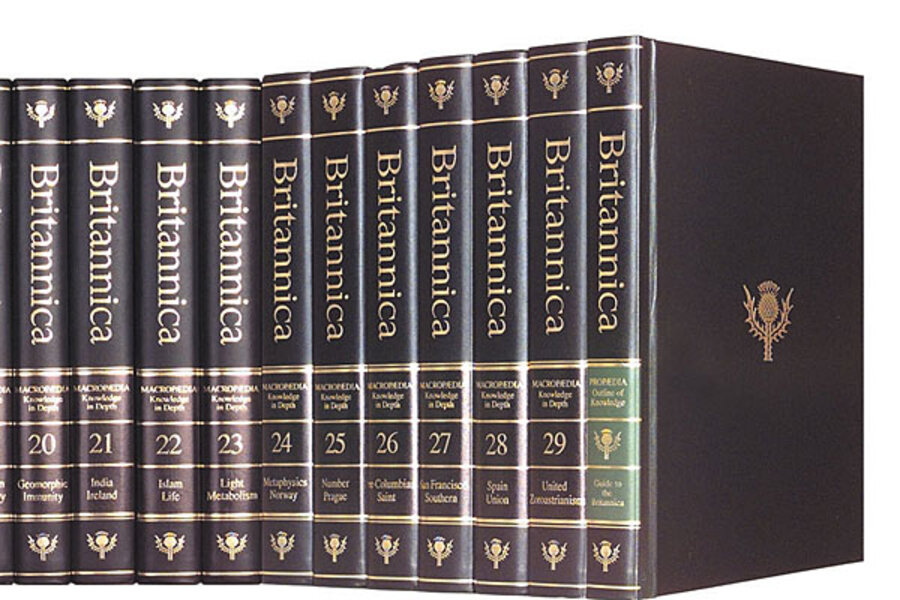In the digital age, where information is just a click away, people often wonder, is Britannica a reliable source? With thousands of online platforms offering knowledge, identifying trustworthy ones is crucial. Encyclopaedia Britannica has long been a respected name in education and academia, but how does it stand in today’s world of fast-paced, user-generated content? This article explores Britannica’s reliability, accuracy, editorial process, and reputation to help you determine whether it remains a credible source for research and learning.
The Legacy of Encyclopaedia Britannica
Encyclopaedia Britannica was first published in 1768 in Edinburgh, Scotland, making it one of the oldest continuously published reference works in the world. For centuries, Britannica has been recognized as a cornerstone of factual knowledge, used by students, educators, and researchers alike. Its historical reputation for scholarly excellence continues to give it weight as a trustworthy source even in the digital era.
The company transitioned from print to digital in 2012, focusing on Britannica.com and its educational platforms. This shift allowed the encyclopedia to stay relevant in a world dominated by online information while maintaining its rigorous editorial standards.
Understanding Britannica’s Editorial Process
To answer the question, is Britannica a reliable source, one must look closely at its editorial process. Britannica employs professional editors, fact-checkers, and expert contributors—many of whom are scholars or specialists in their fields. Unlike open platforms such as Wikipedia, Britannica’s content is not publicly editable.
Each article undergoes multiple layers of review before publication. Editors verify sources, cross-check data, and ensure that the writing maintains a neutral and factual tone. This structured editorial workflow minimizes misinformation and enhances credibility.
For instance, entries on scientific topics are typically reviewed by experts with academic qualifications in that discipline. This ensures that the material aligns with the most accurate and up-to-date research available.
Comparing Britannica to Other Sources
When evaluating is Britannica a reliable source, it’s helpful to compare it with alternatives like Wikipedia, academic journals, or media publications.
Wikipedia allows anyone to edit content, which encourages collaboration but also introduces the risk of inaccuracy. Britannica, on the other hand, maintains strict editorial control. While Wikipedia can be updated instantly, Britannica prioritizes verified information over speed, offering stability and reliability over constant revision.
Compared to academic journals, Britannica is more accessible to the general public. Journals may provide in-depth analysis but often require specialized knowledge or subscriptions. Britannica simplifies complex information without compromising accuracy, making it ideal for introductory research or background study.
Accuracy and Citation Practices
Britannica emphasizes evidence-based writing. Every article includes citations and references that allow readers to trace the information back to its original source. This transparency strengthens its reliability.
Independent studies have also evaluated Britannica’s accuracy. A well-known Nature study in 2005 compared scientific articles from Wikipedia and Encyclopaedia Britannica, finding only a small difference in the number of factual errors. While no source is flawless, Britannica’s lower error rate and professional oversight demonstrate its consistent reliability.
Moreover, Britannica routinely updates its entries to reflect new discoveries, policy changes, and global developments. This ongoing revision process ensures that its information remains current and relevant.
Why Britannica Is Trusted in Academia
Educational institutions and libraries continue to rely on Britannica as a credible reference source. Many universities subscribe to Britannica Academic, a digital platform offering scholarly articles, primary sources, and multimedia tools.
Teachers and researchers value Britannica for its clarity, neutrality, and adherence to factual integrity. Its editorial board avoids bias and presents multiple perspectives where appropriate. This commitment to balanced reporting helps students develop critical thinking skills and a deeper understanding of complex issues.
For example, Britannica’s coverage of historical events often includes political, cultural, and social contexts, ensuring that readers gain a well-rounded perspective rather than a one-sided account.
The Role of Britannica in the Digital Era
The question is Britannica a reliable source also ties into its adaptability in the modern information landscape. While print encyclopedias have declined, Britannica’s digital platforms have expanded dramatically. Its website, educational tools, and apps serve millions of users worldwide, offering interactive learning experiences that combine traditional scholarship with digital convenience.
Britannica’s editorial team actively collaborates with educators to design classroom materials and lesson plans. These resources promote media literacy and encourage students to differentiate between credible and unreliable information online. This initiative reflects Britannica’s commitment to fostering informed, critical-minded learners.

Limitations of Britannica as a Source
Even though Britannica is considered reliable, it’s important to acknowledge its limitations. It is not a primary source but a secondary or tertiary reference, meaning it summarizes information rather than presenting original research.
In academic research, students are often required to cite primary or peer-reviewed sources. Britannica is excellent for initial understanding but should not replace detailed academic studies. Additionally, because of its structured editorial system, updates may not appear as quickly as on open platforms like Wikipedia or news sites.
Thus, while Britannica is reliable, it works best when used as a starting point for deeper exploration rather than the final word on a topic.
How to Use Britannica Effectively
To make the most of Britannica, researchers should treat it as a foundation for understanding topics. It provides concise, accurate summaries that can help users identify key concepts, historical contexts, and credible sources for further study.
When citing Britannica in academic work, it’s best to use it to define terms, summarize general background information, or introduce a topic. For instance, if writing a research paper on climate change, Britannica can help explain fundamental scientific principles before referencing peer-reviewed studies.
Real-World Examples of Britannica’s Impact
Throughout its history, Britannica has shaped education and research worldwide. Schools integrate Britannica School and Britannica Academic into digital learning environments. These platforms have proven especially useful for remote education, offering verified content that students can trust.
Furthermore, Britannica’s articles are frequently cited in educational publications, library databases, and academic projects. Its partnerships with organizations like Merriam-Webster and PBS enhance its authority as a trusted educational resource.
This enduring influence highlights why Britannica continues to be a preferred reference for accurate and balanced information.
Conclusion: Is Britannica a Reliable Source?
So, is Britannica a reliable source? The answer is a resounding yes. Encyclopaedia Britannica remains one of the most dependable and respected reference works available. Its long-standing reputation, expert contributors, rigorous editorial standards, and commitment to factual accuracy make it a cornerstone of credible information.
While it’s best used as a starting point for research rather than a final citation, Britannica consistently provides trustworthy, balanced, and up-to-date knowledge. In a world overflowing with misinformation, Britannica stands as a beacon of integrity and reliability for students, educators, and lifelong learners alike.
FAQs
1. Can Britannica be used for academic research?
Yes, Britannica is suitable for background research and understanding foundational concepts, though primary or peer-reviewed sources are preferred for academic citations.
2. How accurate is Britannica compared to Wikipedia?
Studies show that Britannica contains fewer factual errors than Wikipedia due to its professional editorial process and expert review.
3. Who writes the articles in Britannica?
Most Britannica articles are written and reviewed by scholars, subject-matter experts, and professional editors, ensuring accuracy and neutrality.
4. Is Britannica free to access?
Some Britannica content is free online, but full access to Britannica Academic or School editions typically requires a subscription.
5. Why do educators still trust Britannica today?
Educators value Britannica for its verified, unbiased, and well-organized content that supports critical thinking and research skills in students.
Read Also : Is Britannica a Reliable Source? A Complete Guide to Its Credibility and Accuracy

